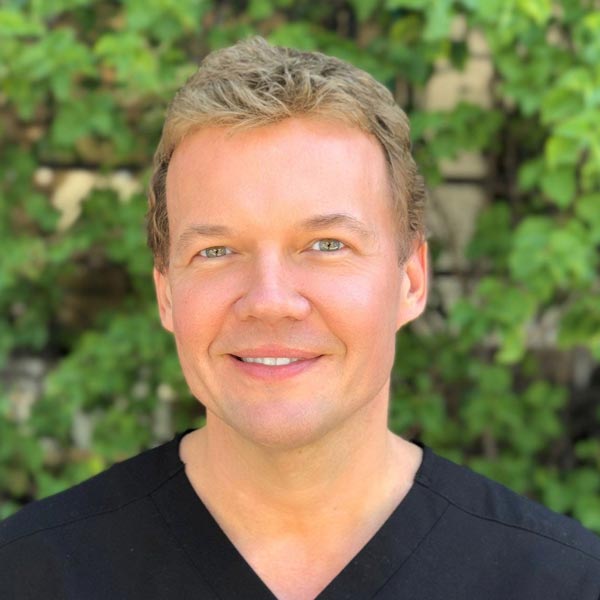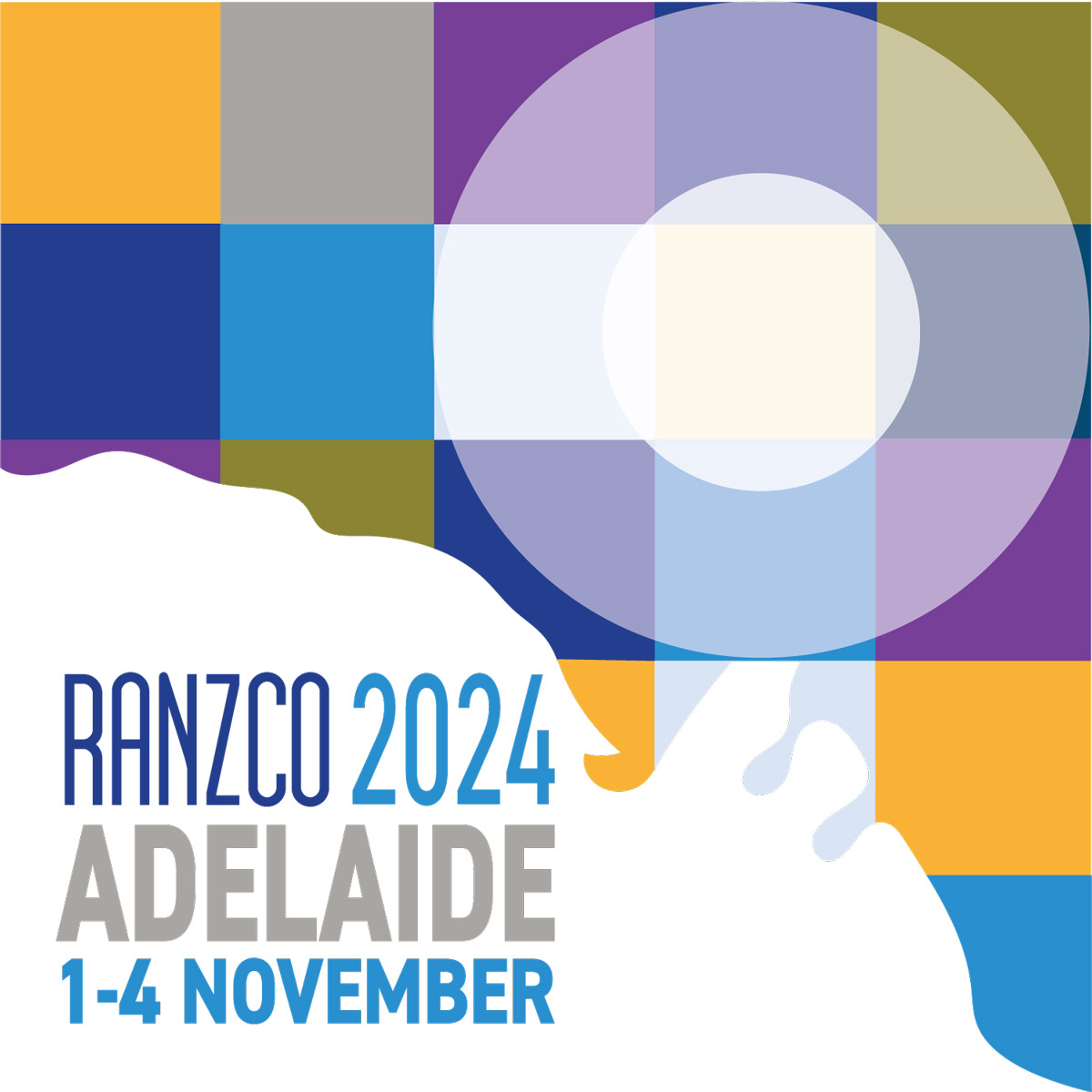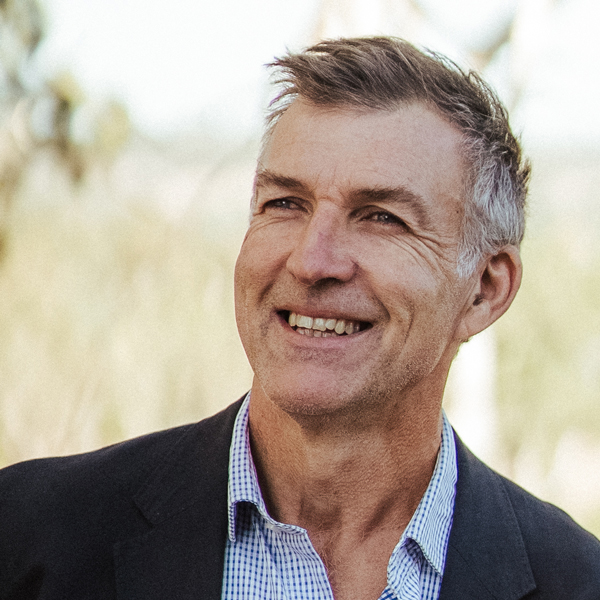
Tim Jarvis
Congress Opening Speaker
Tim Jarvis PhD (Hon) MSc, MEnvLaw is an environmental scientist, adventurer, author, public speaker and film-maker with more than 30 years of environmental experience. He is committed to finding pragmatic solutions to environmental issues related to climate change and biodiversity loss and uses his public speaking engagements, films and books to progress thinking in these areas. He strongly advocates applying outcome-focused, systems thinking approaches learnt from his successful expedition career to the management of complex issues related to the environment and applies lessons learnt to talk to corporate organisations and educators about purposeful leadership, problem-solving, teamwork, change management, goal setting and sustainability.
Awards: Yale World Fellow 2009 for sustainability leadership; Member of the Order of Australia (AM) 2010 for services to environment, community and exploration; Australian Geographic Adventurer of the Year 2013 & Conservationist of the Year 2016 – the only person to have received both awards; Sydney Institute of Marine Science Emerald award for services to the environment; Royal Institute of Navigation’s Certificate of Achievement, Leader of the Shackleton Epic Expedition; Bragg Fellow of the Royal Institution of Australia 2017; Bettison James award 2016 for documentary film-making (for the 25Zero project that highlights climate change via equatorial glacier melt); Completed the course: Leading Sustainability: High Impact Leadership, Cambridge University, Institute for Sustainability Leadership – 2023; Australian of the Year 2024 for South Australia. Honorary Doctorate Edith Cowan University 2024.
Current Roles: Adviser to the Pew Foundation on marine conservation issues (helped secure the 475,000km2 MacQuarie Island Marine Sanctuary declared by Minister Plibersek in July 2023), Working to secure Sanctuary status for Heard and McDonald Islands in 2024; Marine advisor Patagonia Outdoor Co; Vitality Ambassador – AIA Health Insurance (role is to show co-benefits of a healthy environment for individuals mental and physical wellbeing), Environment Ambassador – BGIS global facility manager; Biodiversity legislation Champion – Government of South Australia (tasked with helping establish a Biodiversity Act, SA in 2024). Former roles: Global sustainability role – Arup, Sustainability specialist AusAID, the World Bank, the Murray Darling Basin Commission and Dept of Agriculture Fisheries and Food.
Honorary Roles: Vice-President – Fauna & Flora; Global Ambassador and Governor – WWF; Ambassador to Koala Life; Board Director of the Foundation for National Parks & Wildlife. Head of the adventure advisory panel of the Australian Geographic Society. Professor of Leadership Practice Edith Cowan University.
Current Projects: Founder and presenter Thin Ice VR – a ground-breaking VR film showing climate change in Antarctica (winner best VR film at Cannes and LA film festivals 2022); Founder of the Forktree Project that through rewilding a degraded former Australian pastoral property provides insights on how to combat the twin threats of climate change and biodiversity loss by delivering experiential sustainability education, trialling and showcasing innovative land and water management practices and providing guidance to organisations, landowners and individuals to enable them to make a positive contribution to combatting these issues.
Expeditions/film highlights: Tim has undertaken multiple unsupported expeditions to the world’s most remote regions and has a long history of working with sponsors and the media. Highlights include to the South Pole, the high Arctic, across Australia’s largest desert, the Great Victoria and retracing the polar journey of Sir Douglas Mawson using only the same gear, equipment and starvation rations as Mawson did in 1913. The documentary – Mawson Life and Death in Antarctica was flagship of the Film Australia ‘Making History’ series, and fronted Channel 4’s highly acclaimed ‘Edge of Endurance’ series in 2007.
Expedition patrons were Australian Prime Minister the Hon John Howard and Sir Ernest Shackleton’s grand-daughter the Hon. Alexandra Shackleton.
In 2013, Tim led the first authentic retracing of polar explorer Sir Ernest Shackleton’s “double” – sailing a replica James Caird boat 1500kms across the Southern Ocean from Antarctica to South Georgia and climbing over South Georgia’s mountainous interior using the same equipment as Shackleton. It is the first time that anybody has been able to authentically recreate what is regarded by many as the world’s greatest survival journey. A highly successful Discovery Channel/PBS documentary film was made about the expedition.
Shackleton: The Greatest Story of Survival, 2023 – a documentary outlining the story and leadership lessons associated with Shackleton’s incredible journey of survival.
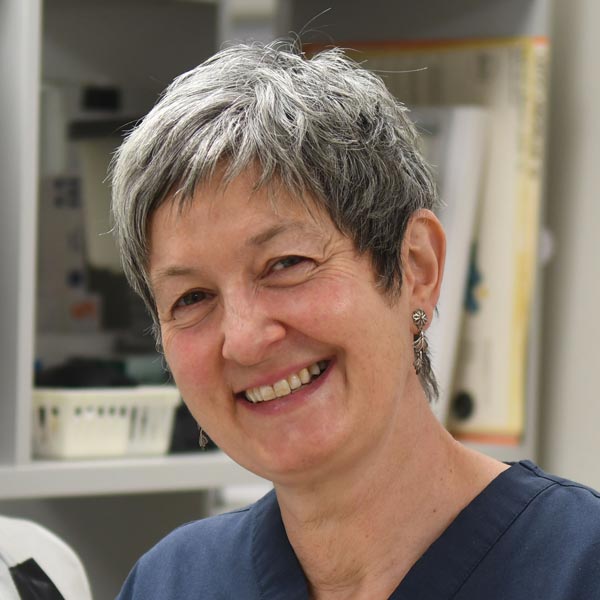
Prof Justine Smith
The Council Lecture
The Council Lecture was established in 1963 to honour members (Fellows) engaged in original work, or to establish a means whereby a Fellow can deliver an authoritative and distinguished lecture on a subject of which the Fellow has particular experience or knowledge. It generally goes to senior Fellows who have made a significant contribution to clinical ophthalmology. The presentation shall be for 30 minutes duration by an ophthalmologist and discussion will form no part of the proceedings. The lecture becomes the property of the College. The Council lecture provides an opportunity for Fellows who are not necessarily a member of an academic department, to present their work. A certificate is presented to the lecturer at the start of the lecture.
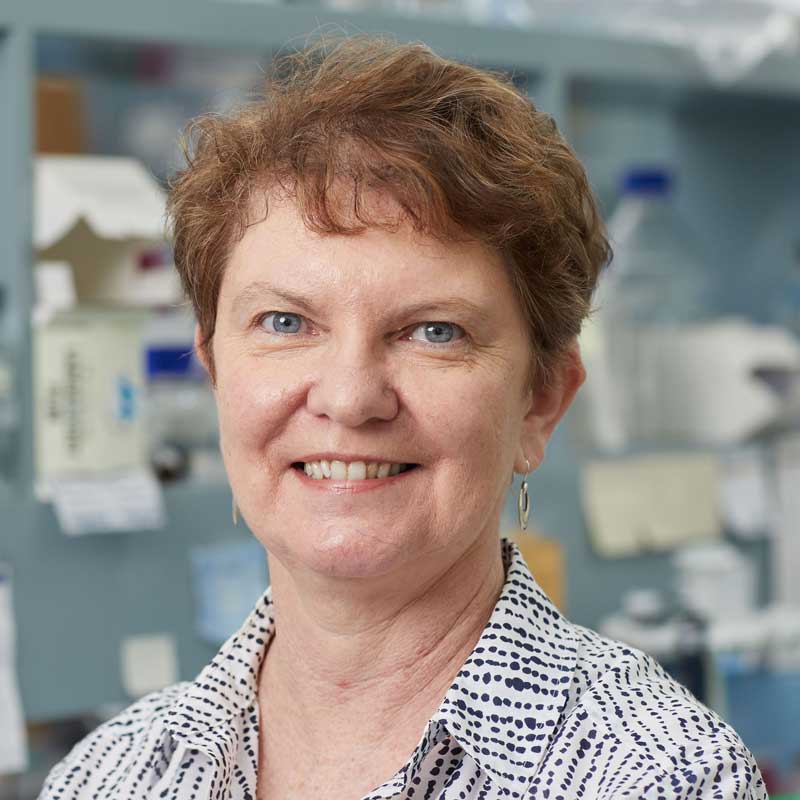
Prof Robyn Jamieson
The Dame Ida Mann Memorial Lecture
The Dame Ida Mann Memorial Lecture was established in 1988 by the Council of the College in recognition of the outstanding contribution made to ophthalmology by Dame Ida Mann. The presentation shall be for 30 minutes duration and is to cover an important topic that is oriented to the basic or novel clinical sciences of ophthalmology with clinical relevance (not confined to Fellows). Questions or discussion will form no part of the proceedings. The lecture becomes the property of the College. A certificate is presented to the lecturer at the start of the lecture.
Professor Robyn Jamieson MBBS (Hons) PhD FRACP CG (HGSA)
Dr Robyn Jamieson is Professor of Genomic Medicine, University of Sydney, and Head of the Eye Genetics Research Unit at Children’s Medical Research Institute, Sydney Children’s Hospitals Network and Save Sight Institute, University of Sydney. She leads the Specialty of Genomic Medicine and the Genomics and Precision Medicine stream in the Master of Medicine and Master of Biomedical Science programs. Professor Jamieson is Co-Chair of the Sydney Health Partners Clinical Academic Group in Genomics and Precision Medicine Partnerships. She heads the Eye Genetics Clinic at Sydney Children’s Hospitals Network and the Western Sydney Genetics Program encompassing comprehensive clinical and laboratory services in genomics, metabolic disorders and newborn screening.
Professor Jamieson’s basic science research led world-first publications of novel disease gene and mechanism identifications in the ocular genes MAF and SIPA1L3, as well as ALPK1 which leads to the novel inflammatory and retinal disorder ROSAH syndrome. Overall, her laboratory’s research has led to over 80 novel disease gene, genetic variant and disease mechanism discoveries, with substantial contribution to the international public database of genetic variants, ClinVar. Functional genomic studies in her laboratory led to patient eligibility for life-changing RPE65 ocular gene therapy and RPGR clinical trial eligibility. Current studies include investigation of patient-derived induced pluripotent stem cells differentiated to retinal organoids, using gene-editing and replacement strategies to determine underlying disease mechanisms, and develop and test new genetic therapies for inherited retinal diseases (IRDs).
Professor Jamieson leads the Ocular Gene and Cell Therapies Australia team, which implemented the first delivery of publicly funded ocular gene therapy in Australia, and the team continues to deliver the research and clinical genomic, laboratory, ophthalmic and multidisciplinary components for this and other breakthrough therapies for patients with genetic retinal diseases. Professor Jamieson contributes to the international ClinGen variant curation consortium, as well as advisory boards for Australian and SE Asian genetic therapy implementation.
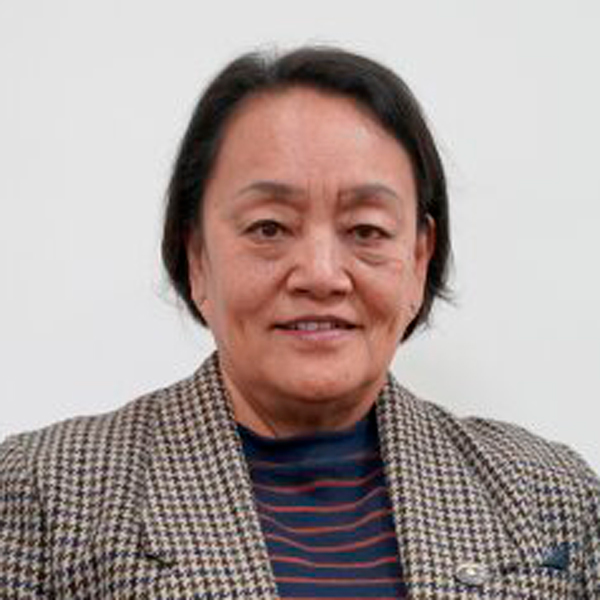
Dr Reeta Gurung
The Fred Hollows Lecture
The Fred Hollows Lecture was established in 1999 to recognise the work Prof Fred Hollows undertook with Indigenous people and in raising the profile of ophthalmology. The Fred Hollows lecture is for Fellows involved in outreach or international ophthalmology. The presentation shall be for 30 minutes duration and will address a topic of applied public health research with a community focus. Questions or discussion will form no part of the proceedings. The lecture becomes the property of the College. A certificate is presented to the lecturer at the start of the lecture.
Dr. Reeta is a highly respected cornea specialist and master trainer. She has also been instrumental in helping advance gender equity for eye care through her leadership and mentorship of other ophthalmic professionals from around the world who train with her. Dr. Reeta’s leadership and expertise as a trainer has rippled throughout Southeast Asia and sub-Saharan Africa.
Dr. Reeta’s career as an ophthalmologist began after her sub-specialty training in Bristol, England. In 1993, she connected with HCP Co-founder Dr. Sanduk Ruit to discuss rural eye care in Nepal. Dr. Reeta Gurung was CEO from 31 August 2014 and Dy. Medical directorfrom 17 July 2006 at the Tilganga Institute of Ophthalmology. Her dedication and hard work have shaped Tilganga’s success in quality of care and impact in the region.
Dr. Reeta sets the standard for gender inclusion across all of Tilganga’s clinical and training programs. She is a member of Nepal’s National Gender and Eye Health Group, a multi-disciplinary, multi-institutional group that brings together people and institutions from both public and private sectors to promote gender equity as it relates to eye care in Nepal.
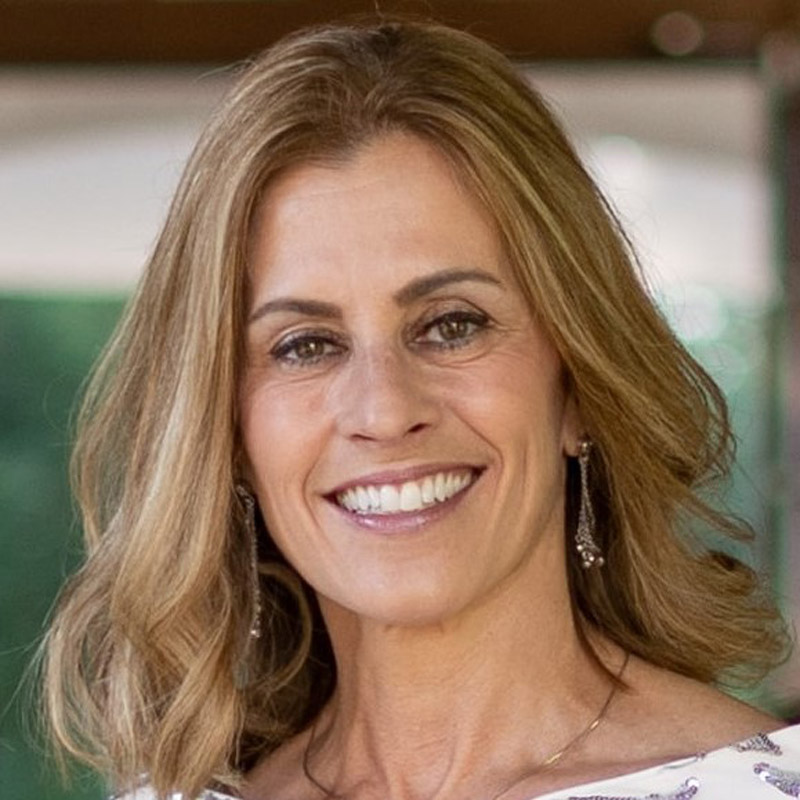
Prof Rosa Braga-Mele
Cataract Update Lecture
Rosa Braga-Mele MD, MEd, FRCSC
Rosa Braga-Mele MD is Professor of Ophthalmology, Faculty of Medicine at the University of Toronto, Canada. She graduated Magna Cum Laude from University of Ottawa Medical School. She then completed her residency at the University of Toronto. She went on to complete her Masters Degree in Higher Education.
Dr. Braga-Mele is a cataract specialist and educator who speaks frequently at both the national and international level on advanced surgical techniques and innovations in phacoemulsification surgery and complicated cataract cases and IOL development. She has over 150 published abstracts and papers.
Dr. Braga-Mele served as the Chair of the Education Clinical Committee (2015-2018) and Chair of Cataract Clinical Committee (2010-2015) for the American Society of Cataract and Refractive Surgery (ASCRS) and was a member of the Governing Board for ASCRS. She is currently Cataract Section Editor for EyeWorld (an ASCRS publication) and is on the editorial board of other ophthalmic publications.
She was the inaugural Research Director at the Kensington Eye Institute in Toronto from 2007-2012. She was appointed Cataract Director at the KEI in May 2013-Dec 2019.
She has won multiple teaching awards both at the undergraduate and resident levels at the University of Toronto, for her teaching and mentorship abilities including the Silver Needle award in 2003, 2007, 2012, 2016, 2017 and 2020 for best resident surgical teacher, and the University of Toronto, Faculty of Medicine, Community-Based Teaching Award in 2016. She was given the American Academy of Ophthalmology (AAO) Senior Achievement Award in 2013 for distinguished volunteer service and the AAO Secretariat Award in 2012 for special contributions to the Academy and ophthalmology out of proportion to others and making a difference in her efforts.
She was awarded University of Ottawa Alumni Association 2019 Meritas Tabaret Award given to those that have distinguished themselves through excellence and achievement in their professional field throughout their career; have demonstrated leadership in their profession; have made a positive contribution to the prestige, influence and reputation of the University of Ottawa; and have exercised and continue to exercise a strong positive influence in the community.
And in 2022 she was awarded the prestigious Binkhorst Medal and Lecture by the American Society of Cataract and Refractive Surgery for an accomplished and exemplary career in ophthalmology.
In addition, she is a mother of 3 boys, ages 25, 23 and 15. She is a Canadian certified Level 1 basketball coach and has coached many boys’ basketball teams to championships. She has her 2nd degree black belt in karate. She is a nationally ranked bodybuilder as a Natural athlete in women’s physique division winning a bronze medal at Canadian Natural Nationals in November 2021.
Innovative and New Technologies and Techniques in Cataract Surgery
This talk will include some of the newest or emerging technologies in cataract diagnostics, phacoemulsification surgery and IOL development.
It will also touch on innovative techniques for nuclear removal, and anterior chamber stabilization during and at the end of cataract surgery. It will showcase some techniques for challenging cases.
The audience will take away some useful techniques that can be utilized in the OR for cataract surgery and learn about new technologies that may change the way we manage our cataract patients from the office to the OR.
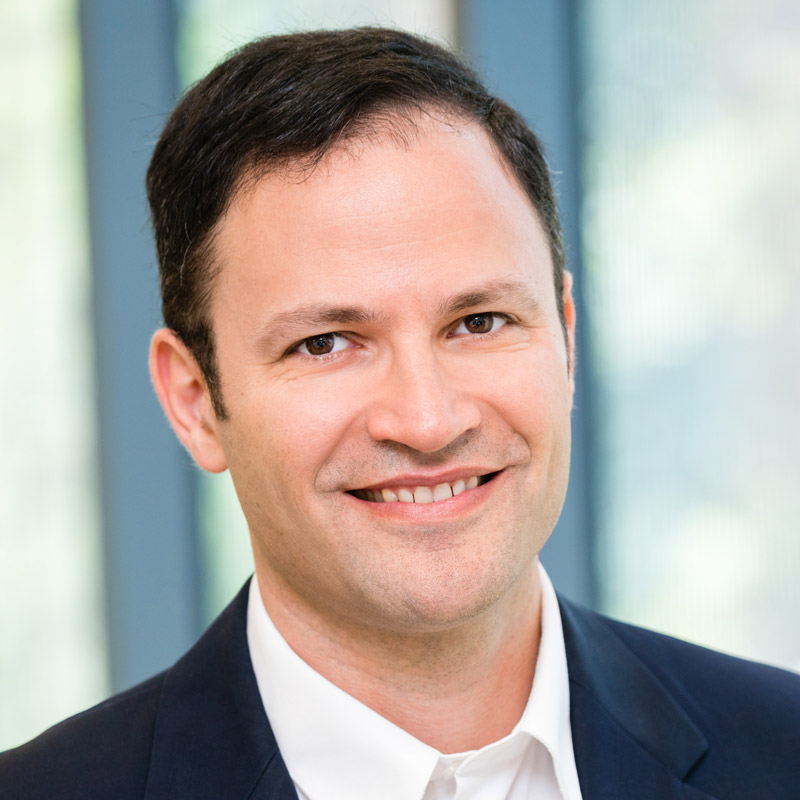
Prof Jeffrey L Goldberg
Glaucoma Update Lecture
Dr. Jeffrey Goldberg is Professor and Chair of Ophthalmology and Director of the Byers Eye Institute at Stanford University, and a member of the National Academy of Medicine. His clinical effort is focused on patients in need of medical or surgical intervention for glaucoma and other retinal and optic nerve diseases, as well as cataract. His research is directed at neuroprotection and regeneration of retinal ganglion cells and the optic nerve, a major unmet need in glaucoma and other optic neuropathies, and his laboratory is developing novel molecular, stem cell and nanotherapeutics approaches for eye repair.
Dr. Goldberg received his B.S. magna cum laude from Yale University, and his M.D. and Ph.D. from Stanford University where he made significant discoveries about the failure of optic nerve regeneration. He did his clinical training in ophthalmology and then in glaucoma at the Bascom Palmer Eye Institute, and was awarded a fellowship from the Heed Foundation. He was named the 2010 Scientist of the Year by the Hope For Vision foundation, and received the Cogan award from the Association for Research in Vision and Ophthalmology in 2012. He was elected in 2010 to the American Society of Clinical Investigation, an honorary society of physician scientists, and in 2021 to the American Ophthalmological Society. He directs an NIH-funded research laboratory and is one of the scientists funded by the National Eye Institute’s Audacious Goals Initiative. In addition, he has developed significant expertise with implementing FDA clinical trials for optic nerve neuroprotection and regeneration. His goal is to translate scientific discoveries to patient therapies.
Neuroprotection and Neuroenhancement: Bench to Clinic
The science of retinal ganglion cell neurodegeneration now points to multiple targets for biomarkers—new ways to measure disease progression or response to therapy—and for treatment—new ways to promote RGC survival (neuroprotection) and function (neuroenhancement). In recent years we and others have begun transitioning such targets out of the lab and into the clinic. Here we will review advances in biomarker and therapeutic discovery and translation in glaucoma.
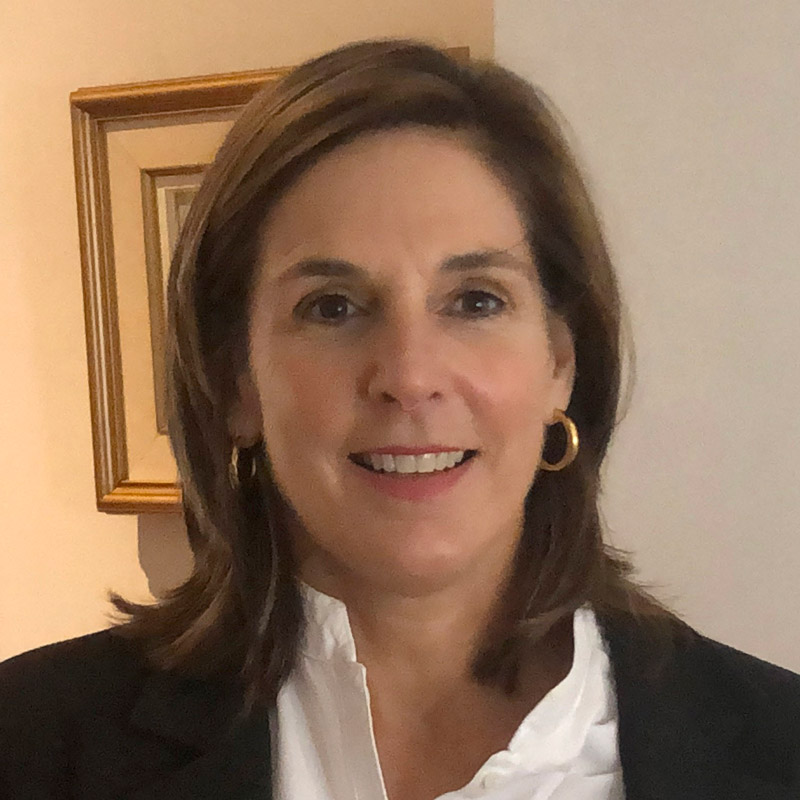
Elise Héon
Paediatrics Update Lecture
Elise Héon, MD, FRCSC
The Hospital for Sick Children and the University of Toronto.
Dr. Héon is a Clinician Scientist, Professor of Ophthalmology at the University of Toronto (Canada) and has been staff pediatric ophthalmologist at The Hospital for Sick Children since 1996. She directs the Ocular Genetics program, which provides comprehensive genetic testing, diagnosis, management, and counseling for patients with inherited retinal diseases (IRDs). Since 2018, she holds the Henry Brent Chair in Innovative Pediatric Ophthalmology Research. She also chairs the Fighting Blindness Canada patient registry and the National advisory board for ocular gene therapy. She was instrumental at implementing access to Luxturna, the first gene replacement therapy for retinal degeneration (RPE65 gene) and is PI on numerous clinical trials some interventional some not. She teaches students and fellows of all academic levels. Her research is focused on the genetic analysis of inherited retinal disorders, and the development of patient reported outcome measures for that pediatric patient population with IRD.
Her laboratory focusses on genome sequencing to IRD patients when clinically-based genetic testing has failed. Genetic characterization of diseases is important to optimize management of patients and provide access to novel gene specific therapeutic opportunities. Dr. Héon has a long-standing interest in ciliopathy-type conditions such as Bardet-Biedl syndrome (BBS) for which she has dedicated much efforts to better understand the complexity of this condition and set the path to access novel therapies.
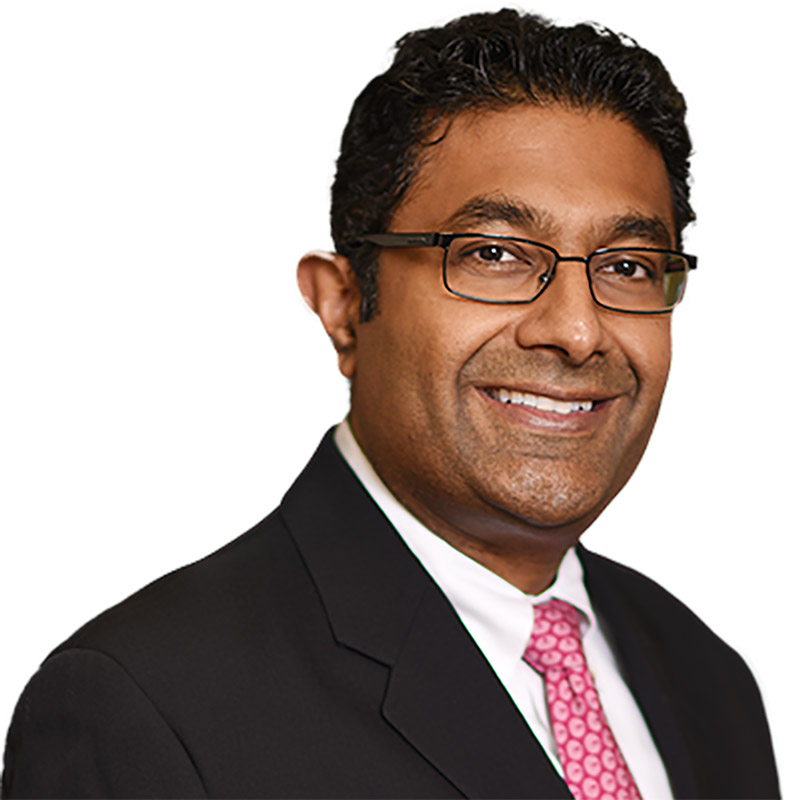
Dr SriniVas R Sadda
Retina Update Lecture
SriniVas R. Sadda, MD, FARVO
SriniVas R. Sadda, MD, is the Director of Artificial Intelligence & Imaging Research at the Doheny Eye Institute, and Professor of Ophthalmology at the University of California – Los Angeles (UCLA) Geffen School of Medicine. He is the immediate past President of the Doheny Eye Institute. He received his MD from Johns Hopkins University, where he also completed ophthalmology residency and neuro-ophthalmology and medical retina fellowships (Wilmer Eye Institute).
Dr. Sadda’s major research interests include retinal image analysis, advanced retinal imaging technologies, and clinical trial endpoint design. He has more than 700 peer-reviewed publications and 20 book chapters, and has given over 500 presentations worldwide. Dr. Sadda is Editor-in-Chief of the 7th Edition of Ryan’s Retina. He also serves as an Editor-in-Chief of Graefe’s Archive for Clinical and Experimental Ophthalmology and is an editorial board member of Ophthalmology, Ophthalmology Retina, Ophthalmology Science, Ophthalmic Surgery, Lasers & Imaging, and Retina. Among Dr. Sadda’s awards and honors are an Achievement Award and a Secretariat Award from the American Academy of Ophthalmology, Research to Prevent Blindness Physician-Scientist Award, a Senior Honor Award from the American Society of Retina Specialists, John H. Zumberge Research and Innovation Award, the Macula Society Young Investigator Award, American Society of Retina Specialists Young Investigator Award, Asia- Pacific Academy of Ophthalmology (APAO) Achievement Award, The Macula Society Paul Henkind Lecture and Award, Macula Society W. Ricard Green Lecture and Award, the VRSI Nararaja Pillai Oration, and the Euretina Lecture.
He is also a Gold Fellow and President-Elect for the Association for Research in Vision and Ophthalmology, and also President-Elect of the Macula Society. Dr. Sadda’s research has been continuously funded by the National Institutes of Health for several years, including a current R01 grant from the National Eye Institute. He has been named to the Best Doctors of America list for several consecutive years.
Traditionally, imaging technologies in ophthalmology have focused on visualization of structural alterations in the setting of pathology. Technologies such as high-resolution OCT and adaptive optics have allowed layers of the retina and individual retinal cells to be visualized. These devices do not, however, allow the function of these tissues to be probed. Recent advances in imaging, however, have allowed us as ophthalmologists to gain novel insights into the metabolic composition and functional capabilities of retinal cells, and these advances will be reviewed in this presentation. These novel technologies include hyperspectral imaging which utilizes differential reflectance at various wavelengths to discriminate between metabolites such as oxygenated and deoxygenated hemoglobin.
Another technology is flavoprotein fluorescence, which selectively isolates the green fluorescent emission component of blue-excitation fluorescence to quantify oxidized flavoprotein content in the eye which correlates with the status of the mitochondria. In addition to mitochondrial diseases, flavoprotein fluorescence may be affected in age-related macular degeneration, diabetic retinopathy, and other retinal diseases where there is evidence of metabolic stress. Fluorescence lifetime imaging ophthalmoscopy (FLIO) is a novel approach to quantitative autofluorescence that allows fluorophores in the eye to be distinguished based on differences in their emission lifetimes. This may have relevance to diseases such as MacTel, Alzheimer’s, and hydroxychloroquine toxicity.
Finally, dramatic advances in OCT have now allowed intrinsic changes in the reflectivity of the photoreceptors in response to light stimulation to be captured. This has opened the door to measurement of function down to the level of individual retinal cells. With the dawn of the era of targeted pharmacotherapeutics and gene-based therapies, we expect that these advances in metabolic and functional imaging will be of considerable value.
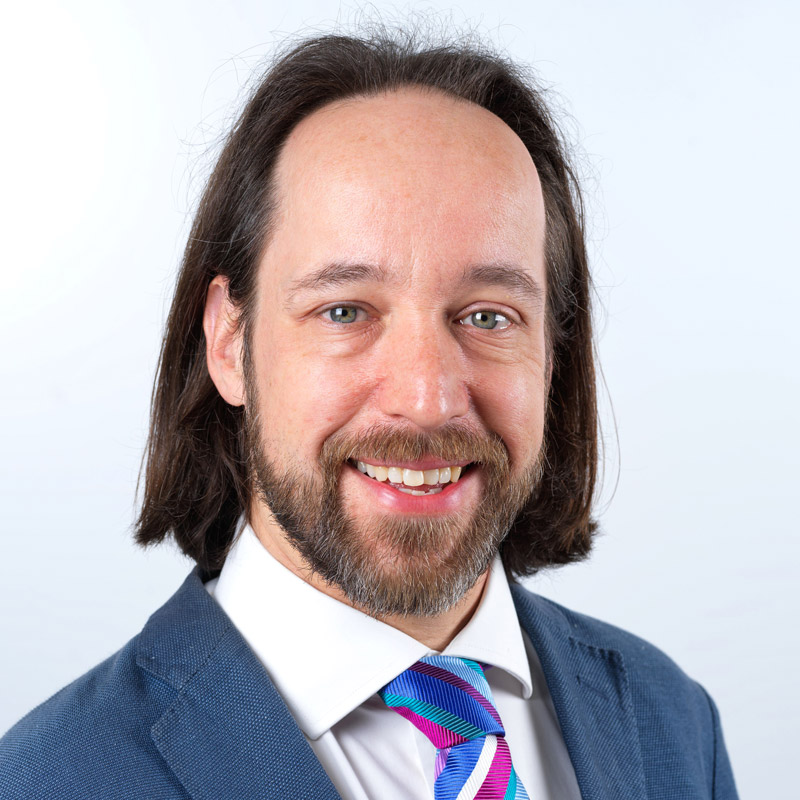
Prof Stuart Macgregor
Sir Norman Gregg Lecture
The Norman McAlister Gregg Lecture was established in 1958 by the Council of the Ophthalmological Society of Australia in recognition of the outstanding contribution made to ophthalmology by Sir Norman Gregg. The lecture covers a clinical or basic science topic that has clinical relevance and may cover some facet of work not previously published (both ophthalmologists and non ophthalmologists can be considered). The presentation shall be for 30 minutes duration and no time for discussion or questions is allowed. The lecture becomes the property of the College. A “Gregg Medal” is presented, together with a certificate, to the lecturer at the start of the lecture.
Professor Stuart MacGregor is Head of the QIMR Berghofer Statistical Genetics Group, based in Brisbane, Australia. Over the last 20 years, Stuart has made seminal contributions to our understanding of complex trait genetics for a wide range of diseases (>275 publications, including >60 on glaucoma). He plays a leading role in consortium science, particularly in the area of genome-wide association studies (GWAS). His work developing and applying statistical genetic methods has led to publications in top journals such as Nature and Nature Genetics (27 publications).
Stuart has received many awards including the Australian Academy of Science Human Genetics Medal and the QIMR Berghofer Breakthrough Award (for his work on glaucoma genetics). In addition to his academic work, he is a co-founder of Seonix Bio, a start-up that seeks to improve the treatment and prevention of blinding eye disease, through the development of advanced risk prediction tools.
